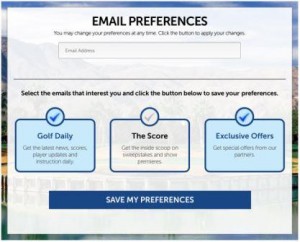All the craze surrounding chatbots have made them one of the hottest topics of conversation, at least in the marketing world. Not only are they powered by incredibly innovative technology, but they also have the power to redefine the way you communicate and interact with your audience.
This has been made increasingly easier, thanks to platforms which allow you to create an IA-powered chatbot in a matter of minutes. Moreover, you can manage and optimize your bot through the platform’s simple interface and it integrates directly with your social media channels, allowing you to take orders and push personalized offers directly from your Facebook pages.
That being said, many entrepreneurs and marketers are still struggling to create chatbots that effectively communicate with their customers and followers. Creating a successful chatbot isn’t about loading it with fancy and impressive features. If you want your chatbot to captivate your audiences, you need to strive for functionality, consistency, and above all, creating a positive user experience.
Finding the perfect combination for your chatbot takes a lot of hard work and fine tuning. To help you on your quest to creating a compelling bot, I’ve put together a list of 10 practices you want to keep in mind to give users the best possible experience.
1- Tell Users How Your Chatbot Can Help
Remember that chatbots were recently introduced to the world of marketing. There’s a good chance that a lot of your users haven’t yet engaged with a chatbot. You should program your bot to send a welcome message and take the opportunity to let them know how it can help. This will set the right expectations and help “break the ice”, as users will then know your chatbot’s limitations and what to expect.
2- A Little Personality Goes A Long Way
You shouldn’t ever try to fool your audience into thinking they are interacting with a real person. You can, however, give your bot a bit of personality so they don’t feel like they are conversing with a robot. Remember, your bot is a direct representative of your brand and giving it a little personality can help you build a stronger relationship with your followers.
The best way to set the right tone is to analyze your industry and your company. If you operate within a fast-paced industry that revolves around efficiency, you may want to give it a mild personality. On the other hand, industries that thrive off emotional connections can greatly benefit from extremely friendly chatbots.
3- Deliver Messages And Suggestions In A Logical Manner
Think about the features and abilities your bot will have and try to tell users about them in a logical manner. Having the right information-delivery architecture will create a smooth and seamless experience that will leave your users wanting more, increasing the chances of repeat interactions.
4- Create A Map Of Your Bot’s Capabilities
The best way to maintain a streamlined process is to create a map of your bot’s capabilities. This flowchart will not be displayed to users, yet it will provide you with a good idea of how each interaction should go and the order in which features or capabilities will be displayed.
5- Alternative Media Usage
Limiting your chatbot to text conversations may be the easiest way to interact with your audience. If you really want to create a lasting impression, you should program it to use different forms of media to deliver your message.
Images, videos, and GIF animations can help your bot communicate more efficiently with your followers. Moreover, users will appreciate the fact that your bot can speak to them using different aids, increasing the likelihood they’ll feel more comfortable when interacting.
6- Optimize Your Bot
The first version of your chatbot to be launched shouldn’t be the last. Measure all meaningful metrics and use them to make changes and optimize your bot.
During the optimization process, you will learn what your audiences like and what they don’t like about your chatbot. In addition to helping you create a better chatbot, you’ll also learn valuable information about your audience, which you can then use to create buyer personas and build better future marketing campaigns.
7- Simple And Functional Wins The Race
As I mentioned earlier, functional chatbots are the best way to catch your audience’s attention. Instead of cramming your bot with fancy features that don’t always work, create a simple bot with a few features that work perfectly. Your followers would much prefer to interact with a simple bot that can accomplish the tasks outlined to perfection, rather than a glitchy one with great features that don’t work.
8- Give Users the Ability to Backtrack
Chatbots aren’t perfect and neither are the persons using them. Humans also make mistakes, so you should always give your users an option to go back on their tracks in case they selected the wrong option. This is where having a map of your bot’s capacities becomes incredibly useful. With it, you will be able to easily give your followers the ability to backtrack in a logical manner.
9- Test Across All Platforms And Devices
As part of any development process, you should test your bot on all platforms and devices on which you plan to make it available. Before launching it, you need to run tests on mobile and non-mobile devices that use different operating systems in order to make sure your bot functions and acts the same across the spectrum.
10- Define Your Goals For Short-Term And Long-Term Success
Besides setting sales and marketing goals for your bot, you should also set goals for user experience. Moreover, these goals should feature both short- and long-term milestones that help you create a useful and consistent chatbot.
You can measure these goals by using analytical tools available through chatbot platforms. Measure stats like average session durations, the total number of interactions, and confusion triggers that will help you create a smoothly operating bot that your consumers value.
Finally…
Creating a successful chatbot is not only about giving it a catchy name or creating the right marketing campaign for it. Consider your followers and make them your top priority, as they will define if your bot is really successful. Use the practices above to make sure you give them the best possible experience while getting one step closer to creating the ultimate chatbot for your brand.
Digital & Social Articles on Business 2 Community(42)
Report Post








